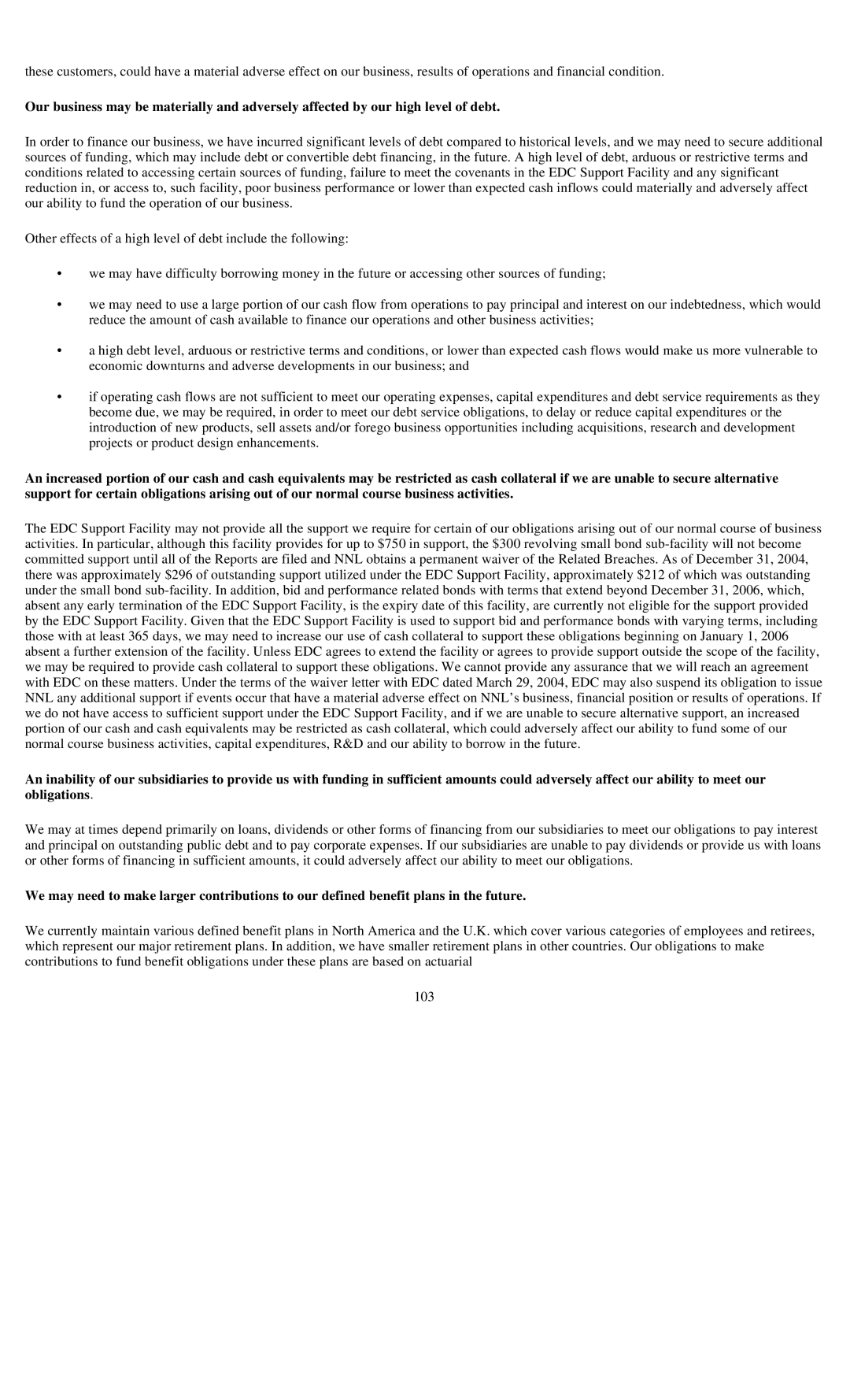these customers, could have a material adverse effect on our business, results of operations and financial condition.
Our business may be materially and adversely affected by our high level of debt.
In order to finance our business, we have incurred significant levels of debt compared to historical levels, and we may need to secure additional sources of funding, which may include debt or convertible debt financing, in the future. A high level of debt, arduous or restrictive terms and conditions related to accessing certain sources of funding, failure to meet the covenants in the EDC Support Facility and any significant reduction in, or access to, such facility, poor business performance or lower than expected cash inflows could materially and adversely affect our ability to fund the operation of our business.
Other effects of a high level of debt include the following:
•we may have difficulty borrowing money in the future or accessing other sources of funding;
•we may need to use a large portion of our cash flow from operations to pay principal and interest on our indebtedness, which would reduce the amount of cash available to finance our operations and other business activities;
•a high debt level, arduous or restrictive terms and conditions, or lower than expected cash flows would make us more vulnerable to economic downturns and adverse developments in our business; and
•if operating cash flows are not sufficient to meet our operating expenses, capital expenditures and debt service requirements as they become due, we may be required, in order to meet our debt service obligations, to delay or reduce capital expenditures or the introduction of new products, sell assets and/or forego business opportunities including acquisitions, research and development projects or product design enhancements.
An increased portion of our cash and cash equivalents may be restricted as cash collateral if we are unable to secure alternative support for certain obligations arising out of our normal course business activities.
The EDC Support Facility may not provide all the support we require for certain of our obligations arising out of our normal course of business activities. In particular, although this facility provides for up to $750 in support, the $300 revolving small bond
An inability of our subsidiaries to provide us with funding in sufficient amounts could adversely affect our ability to meet our obligations.
We may at times depend primarily on loans, dividends or other forms of financing from our subsidiaries to meet our obligations to pay interest and principal on outstanding public debt and to pay corporate expenses. If our subsidiaries are unable to pay dividends or provide us with loans or other forms of financing in sufficient amounts, it could adversely affect our ability to meet our obligations.
We may need to make larger contributions to our defined benefit plans in the future.
We currently maintain various defined benefit plans in North America and the U.K. which cover various categories of employees and retirees, which represent our major retirement plans. In addition, we have smaller retirement plans in other countries. Our obligations to make contributions to fund benefit obligations under these plans are based on actuarial
103
